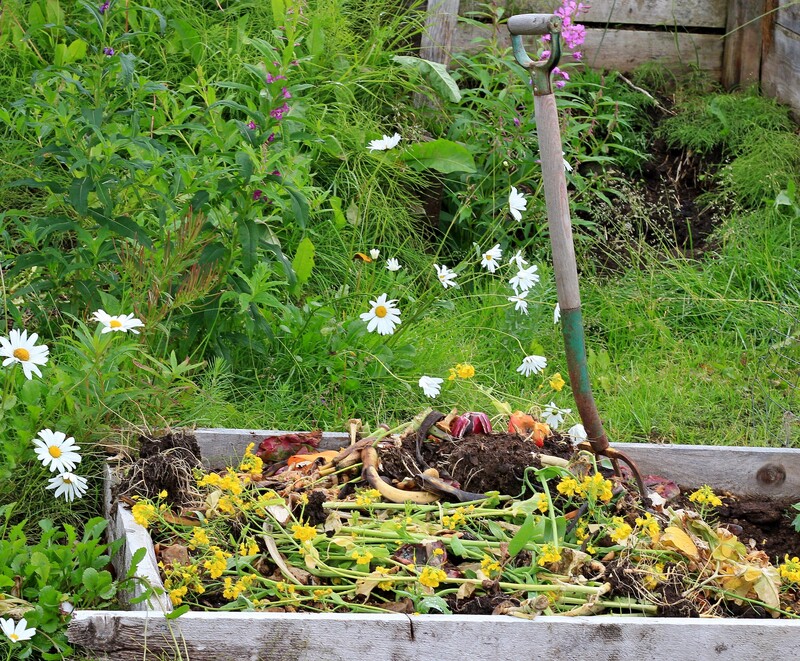Reducing green waste is not just about protecting the environment, but it also promotes sustainability, conserves resources, and can save you money. Implementing innovative strategies can significantly decrease the amount of organic waste that ends up in our landfills. Let's delve into ten creative ways to minimize your green waste footprint.
1. Composting: Nature's Way of Recycling
Composting is one of the most effective ways to reduce green waste. It involves decomposing organic material like food scraps and garden waste to create nutrient-rich soil. This practice not only reduces landfill waste but also enhances soil health.
How to Start Composting
- Select a compost bin or area in your garden.
- Add a mix of green (grass clippings, kitchen scraps) and brown materials (dead leaves, branches).
- Regularly turn the pile to aerate it and speed up decomposition.
- After a few months, you'll have rich compost to use in your garden.

2. Embrace Vermiculture: The Art of Worm Farming
Worm farming, or vermiculture, is another fantastic method for managing organic waste. It involves using worms to break down everyday kitchen scraps.
Why Choose Worm Farming?
- Worms produce high-quality compost known as worm castings.
- It's ideal for apartments or homes with limited outdoor space.
- Worm farms are efficient and can handle a variety of food scraps.
3. Create a Lawncycling Routine
Lawncycling involves leaving grass clippings on your lawn after mowing. This method allows your lawn to naturally decompose clippings, returning valuable nutrients back to the soil.
Benefits of Lawncycling
- Reduces the need for synthetic fertilizers.
- Saves time and effort in bagging clippings.
- Keeps soil moist by reducing surface evaporation.
4. Meal Planning: Reduces Food Waste
Green waste isn't just from the garden; food waste is a significant contributor. Effective meal planning ensures you buy only what you need, thus reducing the chance of food spoiling.
Steps to Better Meal Planning
- Create a weekly meal schedule.
- Shop with a grocery list to minimize impulse purchases.
- Incorporate leftovers into meals to reduce waste.
5. Try Your Hand at Upcycling
Before throwing items in the trash, consider upcycling. This involves converting waste materials or unwanted products into new materials of better quality or for better environmental value.
Ideas for Upcycling
- Use egg shells as a natural fertilizer.
- Create decorative planters from old tins or containers.
- Repurpose food jars for storage solutions.
6. Garden Mulching: An Eco-Friendly Practice
Mulching involves covering the surface of the soil with material to retain moisture and improve soil conditions. Instead of discarding garden clippings, use them as mulch.
Advantages of Mulching
- Suppresses weed growth.
- Maintains soil temperature.
- Improves soil fertility as it decomposes.
7. DIY Organic Products
Make your own organic products from garden and kitchen waste. These can be used for natural pest control and eco-friendly cleaning solutions.
Simple DIY Products
- Use citrus peels to create a natural cleaner.
- Prepare herb-infused oils for natural insect repellent.
- Make a compost tea from compost to fertilize plants.
8. Implement a Swap and Share Program
Swap and share programs can dramatically reduce waste on a community level by promoting the exchange of goods rather than disposal.
How to Start a Program
- Organize community events to trade plants, seeds, or compost.
- Create a local online group for sharing surplus produce.
- Establish a compost exchange system among neighbors.

9. Realize the Power of Edible Landscaping
Edible landscaping integrates food-producing plants into ornamental gardens. By growing your own vegetables and herbs, you reduce reliance on store-bought items and minimize packaging waste.
Starting Your Edible Garden
- Incorporate fruit-bearing trees and shrubs into your landscape.
- Mix herbs and vegetables with ornamental plants for dual purpose.
- Choose low-maintenance crops suitable for your climate.
10. Support Zero Waste Initiatives
Participate in local zero waste initiatives aimed at reducing community waste and promoting responsible consumption patterns.
Participate Actively
- Attend workshops on sustainability and waste reduction.
- Support businesses and products with sustainable practices and packaging.
- Advocate for policies encouraging waste reduction at local and national levels.
In conclusion, adopting these creative strategies not only benefits the planet but enriches personal lifestyles and communities. Reducing green waste is an essential step towards a sustainable future, one where we live in harmony with our environment.